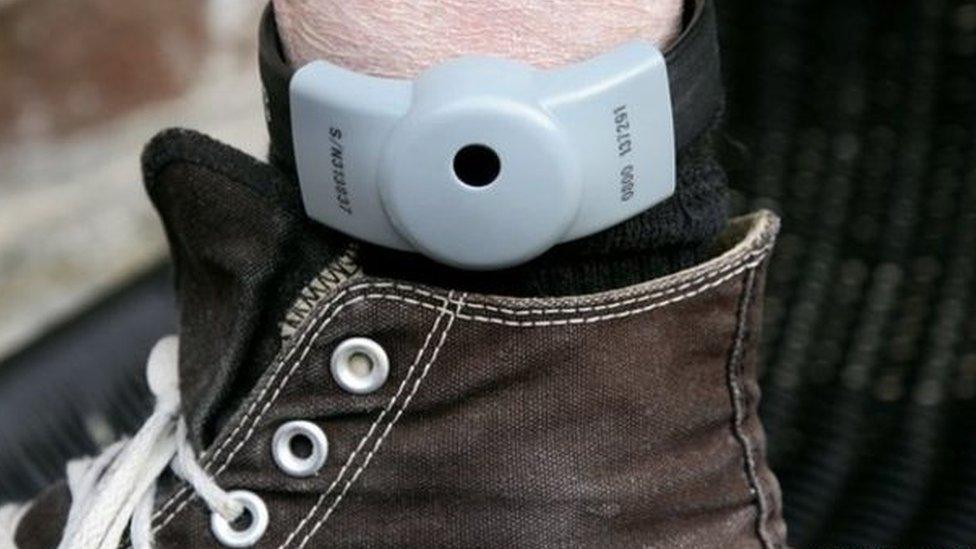Sobriety tag changed my life, says alcohol offender
- Published
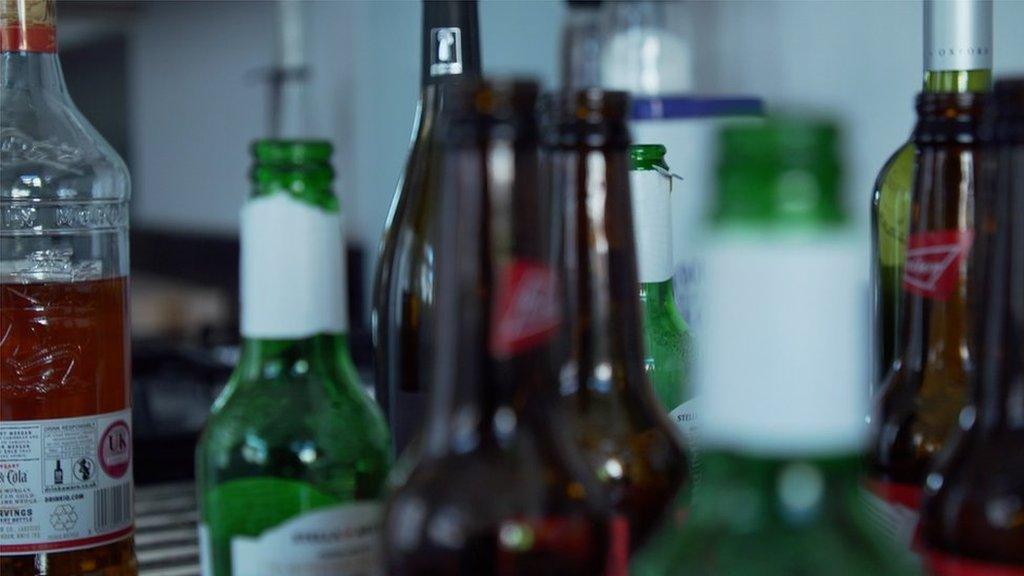
"Over time, without drinking, there seemed to be no issues, no dramas, my life was better," says Teresa
"I was using it as a mechanism when I was feeling down and sad, but then I'd drink too much at one time and end up binge drinking."
Teresa - not her real name - was sentenced to 28 weeks in custody for an alcohol-fuelled assault.
On her release, for 60 days she had to wear a "sobriety tag", which were introduced in Wales exactly a year ago.
Now the 33-year-old says it has allowed her "self-recognition" and is rebuilding her life.
The tag monitored her sweat every 30 minutes and alerted probation staff if she drank alcohol.
"Initially it felt like an additional sentence or punishment but over time, without drinking, there seemed to be no issues, no dramas, my life was better," she told BBC Radio Wales Breakfast with Oliver Hides.
Those who are found to be in breach of their drinking bans can face fines or be sentenced in court.
Nearly 1,000 prison leavers have been tagged in the first year of the scheme designed to crackdown on booze-fuelled crime.
According to UK government figures, alcohol plays a part in 39% of all violent crime in the UK.
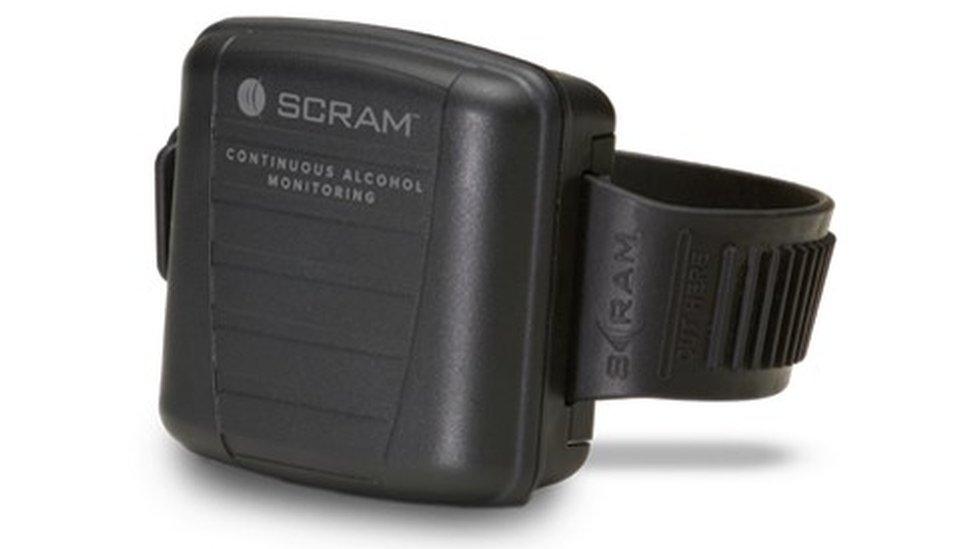
The alcohol monitoring tags monitor users sweat for alcohol consumption
"It was a harrowing experience going to prison," said Teresa.
"Because I didn't drink every single day, I didn't crave it, or have any shakes or anything like that."
Some 20% of offenders supervised by the Probation Service are classed as having an alcohol problem.
"The only time I'd done some sort of offence was under the influence of alcohol," she said. "It helped me recognise that without the alcohol there was no offending behaviour," she said.
Probation officer Catherine Bateman suggested that as Teresa's offences were triggered by drink, as a licence condition, a 60-day tag would give her time to reflect on her life.
She also said it would enable her to work with her to address the underlying causes for the offending.
"People who've been in prison have had a period of very restricted time where they can't actually access any alcohol and then they're released into the community where it's readily available," she said.

Catherine Bateman says "there has got to be a level of motivation because they have to want to do it"
"That is a very big challenge for those people who often struggle. The alcohol monitoring allows them that transition back into the community."
Teresa thinks wearing the tag has changed her life around.
"I probably would have come out and just gone back to drinking," she said.
"It gave me time to do some self-recognition and it's been brilliant.
"I've started an access to university course, I'm out running with my dog, I've joined a netball team and I've got new friends.
"I do look back on it, just so I can take some accountability, and think what was I doing?"
Related topics
- Published31 March 2021
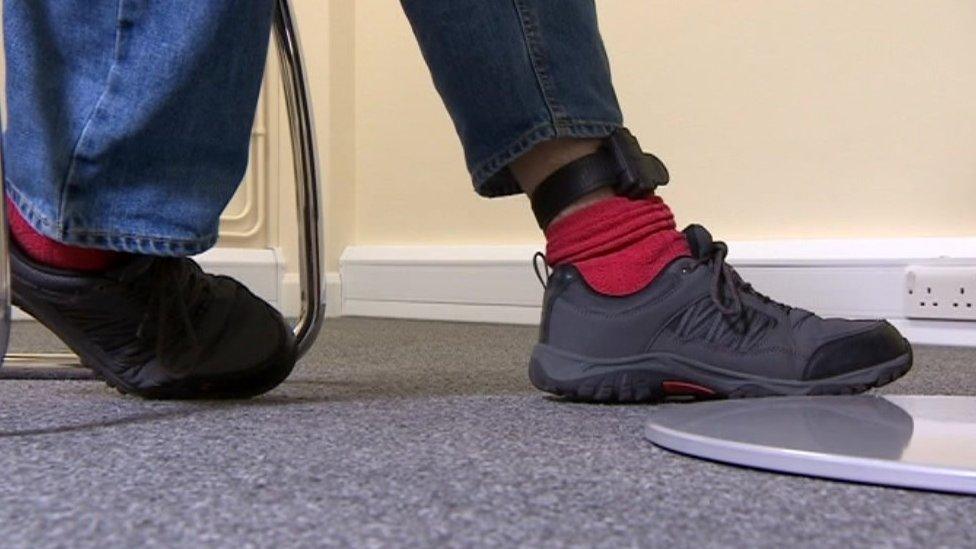
- Published28 June 2021
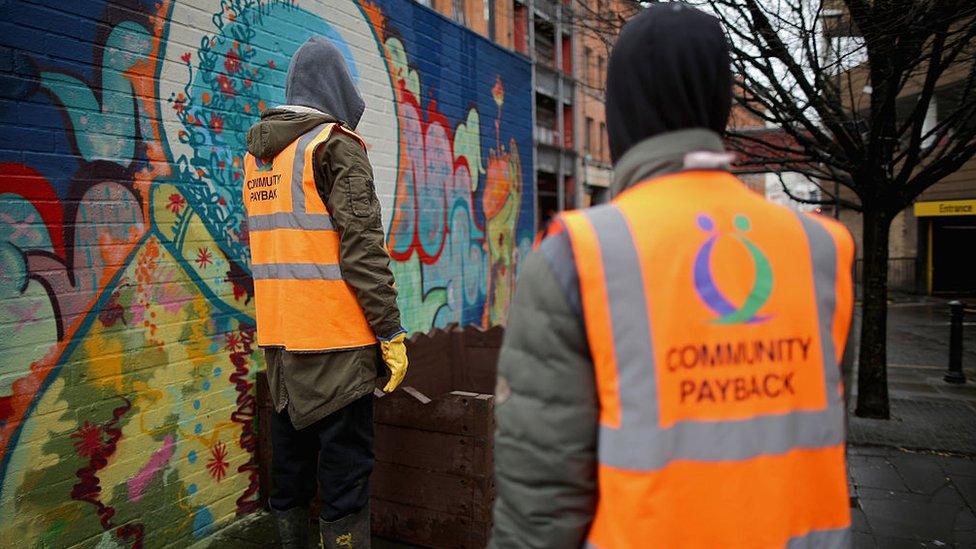
- Published21 October 2020

- Published19 May 2020
